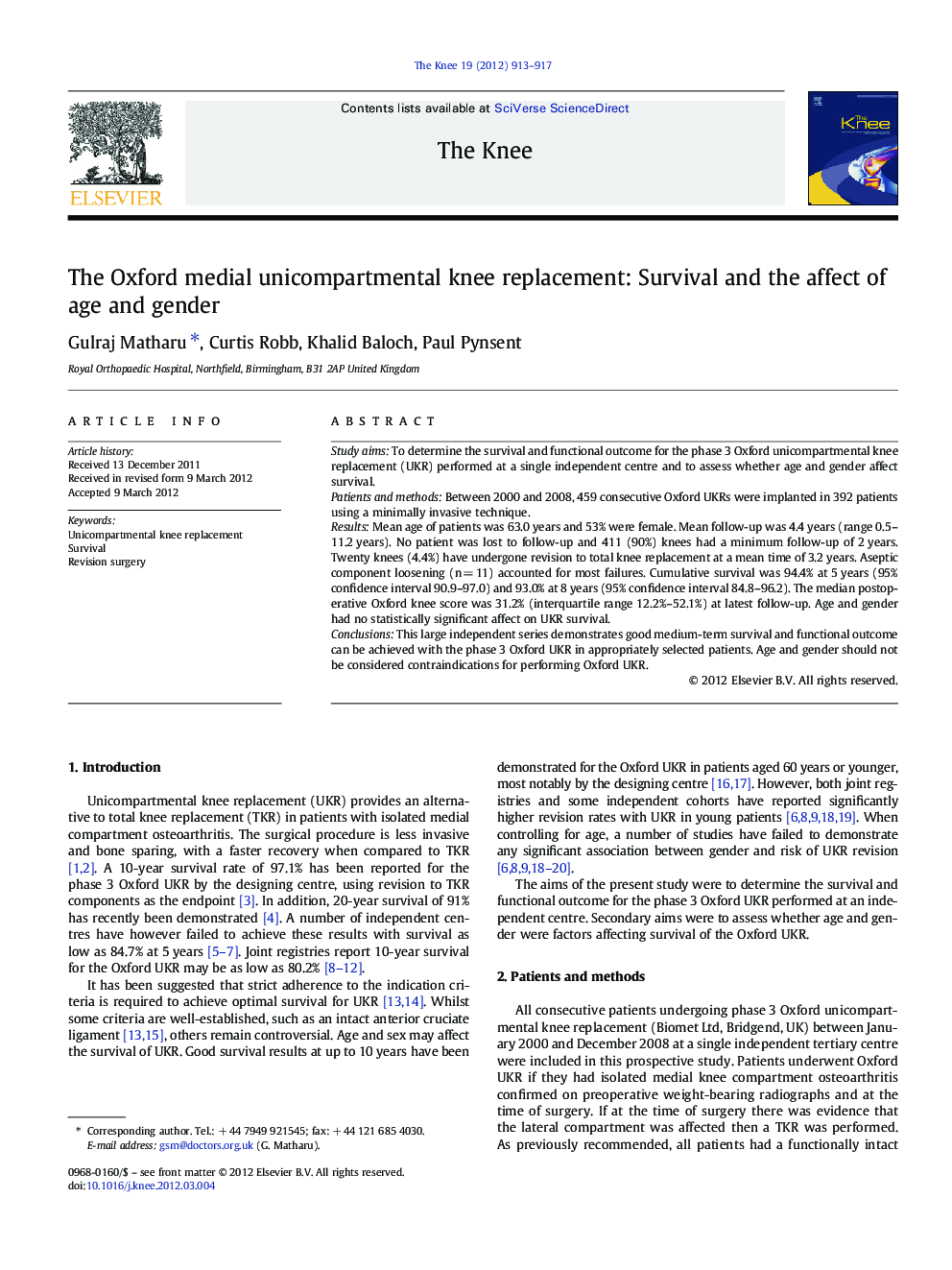| Article ID | Journal | Published Year | Pages | File Type |
|---|---|---|---|---|
| 4077772 | The Knee | 2012 | 5 Pages |
Study aimsTo determine the survival and functional outcome for the phase 3 Oxford unicompartmental knee replacement (UKR) performed at a single independent centre and to assess whether age and gender affect survival.Patients and methodsBetween 2000 and 2008, 459 consecutive Oxford UKRs were implanted in 392 patients using a minimally invasive technique.ResultsMean age of patients was 63.0 years and 53% were female. Mean follow-up was 4.4 years (range 0.5–11.2 years). No patient was lost to follow-up and 411 (90%) knees had a minimum follow-up of 2 years. Twenty knees (4.4%) have undergone revision to total knee replacement at a mean time of 3.2 years. Aseptic component loosening (n = 11) accounted for most failures. Cumulative survival was 94.4% at 5 years (95% confidence interval 90.9–97.0) and 93.0% at 8 years (95% confidence interval 84.8–96.2). The median postoperative Oxford knee score was 31.2% (interquartile range 12.2%–52.1%) at latest follow-up. Age and gender had no statistically significant affect on UKR survival.ConclusionsThis large independent series demonstrates good medium-term survival and functional outcome can be achieved with the phase 3 Oxford UKR in appropriately selected patients. Age and gender should not be considered contraindications for performing Oxford UKR.
